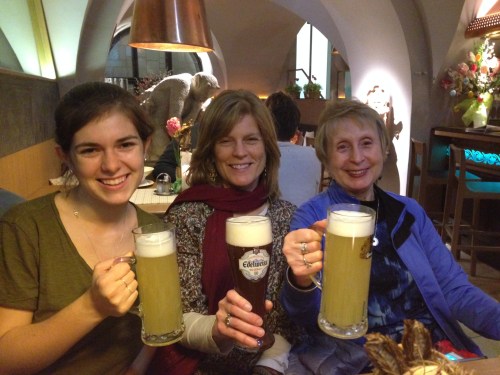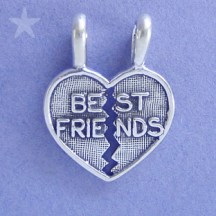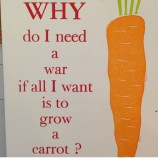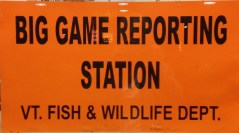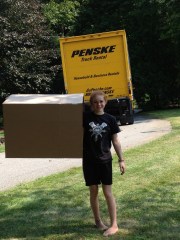
Photo by Laura Thomas
The texts started coming in soon after the first Florida counts.
“I’m scared,” wrote one friend.
“I’m dying,” said another.
“How could it be this close?” implored a third. “What will we do if…”
I was watching the returns—in PJs, with wine and leftover candy corn in hand—at home in Vermont, but my closest friends and family members, scattered around the country, were right there with me.
The messages got more desperate as the results became clearer.
“We are on the verge of arsenic here.”
“Can we look into moving for real?” texted my daughter, at college in California. Her younger sister helpfully forwarded photos of houses for sale in Vancouver and Montreal.
“I hate everyone. Except you guys,” posted one friend in my “Bad Ass Bitches” group chat. We met during the Clinton administration—the first one, we were hoping—and have seen each other through toddlers, teenagers, 9/11, two terms of W., family crises, job changes, and cross-country moves.
Soon the communication took on a different tone—less panicked, more concerned. “Sue?” someone texted a few hours later, after I had fallen into a morose silence. “We’re worried about you. Just like to hear your chatter.” I assured her I was merely despondent, not suicidal.
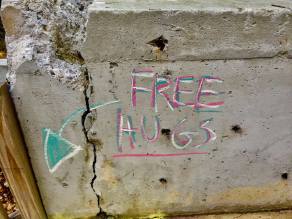
Photo by Dave Hohenschau
That night and in the days the followed, we checked in on each other. “How’s everyone doing today?” inquired one Bad Ass Bitch the next morning. “Sad,” came the answer. “Embarrassed for our country.” “I keep breaking down.” “Waiting to wake up from this nightmare.” Mr. 70 Percent heard from college classmates he hadn’t spoken to in months: “Just touching base. You doing OK?” I even used the Words with Friends chat feature to ask my regular opponents how they were holding up. The responses were predictable, but oddly comforting: “Absolutely wrecked.” “Totally depressed.” “Terrible. More worried for my children than for myself.”
For my entire social network–like those of most other “out-of-touch elitists”–Nov. 8 was a national tragedy, akin to 9/11 or the Challenger explosion or JFK’s assassination. And like all national tragedies, it triggered a deep desire to connect with loved ones, to share our pain, to take care of one another. It reminded us to show our gratitude for those we sometimes take for granted. “I love you,” friends wrote out of the blue. “I appreciate more than ever that we share the same values,” I gushed to my parents, who are circling 80 and may not have many more presidential votes left.
If there was any consolation to be found, it was in this spontaneous outpouring of support and compassion. At a pocket park in my home town of Middlebury, parents and children used co lored chalk to turn their outrage into flags, rainbow hearts, and messages of hope (pictured above). Around the country, devastated college students soothed themselves and one another with hugs, hot chocolate and Play-doh. A “subway therapist” in New York provided Post-It notes so commuters could share their feelings about Trump on the platform walls. And taking a page from the opponents of Brexit, Hillary supporters donned safety pins to show their solidarity with anyone threatened, insulted, or marginalized by Trump–which, let’s face it, is most of us. The overwhelming message, more powerful than any swastika or “white power” chant Trump’s fringe supporters could muster, is that we are in this together, and together we will overcome.
lored chalk to turn their outrage into flags, rainbow hearts, and messages of hope (pictured above). Around the country, devastated college students soothed themselves and one another with hugs, hot chocolate and Play-doh. A “subway therapist” in New York provided Post-It notes so commuters could share their feelings about Trump on the platform walls. And taking a page from the opponents of Brexit, Hillary supporters donned safety pins to show their solidarity with anyone threatened, insulted, or marginalized by Trump–which, let’s face it, is most of us. The overwhelming message, more powerful than any swastika or “white power” chant Trump’s fringe supporters could muster, is that we are in this together, and together we will overcome.
The problem, of course, is that—unlike 9/11—Trump’s victory is a national tragedy only for half of us. We’ll never recover from it unless we can figure out how to extend the compassion we’ve so generously shown each other to those who elected him.
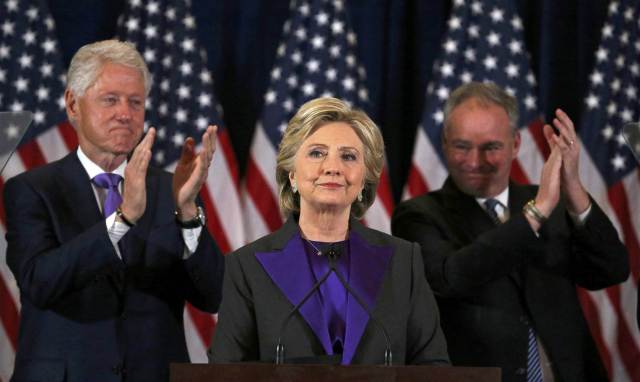

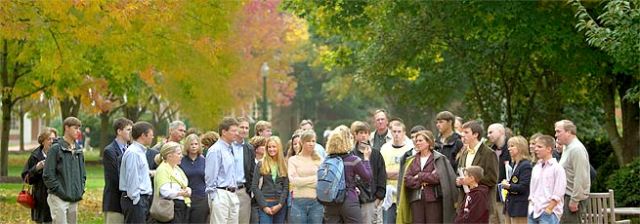















 girl crushes of my own. Whether nothing came of them because I genuinely preferred men or because I was constrained by the forces of society, I’ll never know. That my daughter felt free to act upon her desires is surely a sign of a better world. But it was my mother’s experience at a co-ed camp that really put it in perspective. “There was one girl I used to lie in a bunk with, and we would practice kissing boys,” she recalled. “I don’t think she was a lesbian…”
girl crushes of my own. Whether nothing came of them because I genuinely preferred men or because I was constrained by the forces of society, I’ll never know. That my daughter felt free to act upon her desires is surely a sign of a better world. But it was my mother’s experience at a co-ed camp that really put it in perspective. “There was one girl I used to lie in a bunk with, and we would practice kissing boys,” she recalled. “I don’t think she was a lesbian…”